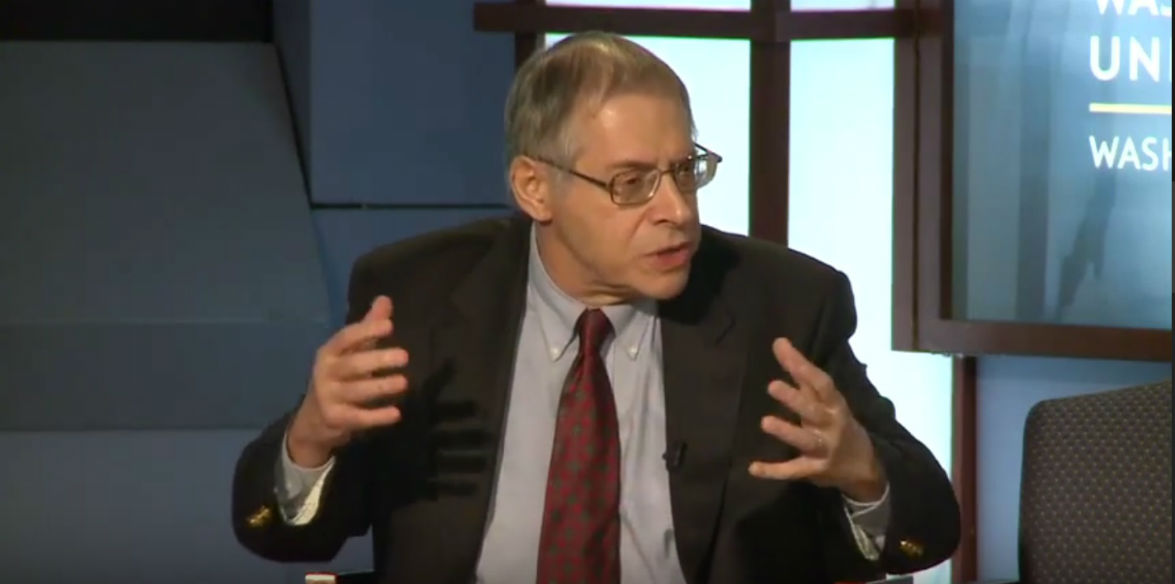One of the notable things about Donald Trump’s campaign and his pronouncements since election day is his post – election frequent lying. Robert Reich offered a column on December 17 called “This is how Tyranny Begins” calling him out on three recent lies, and also suggesting that one of the most important precursors and maintainers of tyranny is lying about the way world is.
Reich then goes to correctly point out that democracies can’t work when truth is undermined, because then people will support policies based on lies that are exactly the opposite of the policies we need, and also will give legitimacy to leaders who don’t deserve it. He ends by saying:
A President-elect who repeats boldface lies poses a clear threat to American democracy. This is how tyranny begins.
Reich is right about the toxicity of lying to democratic political systems. Modern democracy not only provides for majority rule and a peaceful means of replacing leaders, but because it also provides for minority rights and protection of freedom of inquiry. These things, in turn, serve the adaptive interests of society, because adaptation depends critically on inquiry that constantly corrects our necessarily fallible knowledge with better quality knowledge solutions to our problems.
The essential ideas of open society and democracy are:
-
Openness to problem recognition and detection
-
Openness in problem-solving to ideas that are new to us in formulating tentative solutions
-
Openness to criticism of our solutions, theories, or knowledge claims in error elimination, and
-
Honesty in reporting problems, new ideas, and criticisms.
The first three requirements relate to the steps in Popper’s tetradic schema. The fourth recognizes that the problem-solving process will not produce outcomes of quality, approaching closer and closer to the true solutions to problems, if a modicum of honesty is not present in the system.
The reason is that dishonesty undermines the effectiveness of collective problem – solving because (a) the most serious problems facing a society are not identified, (b) the most promising tentative solutions are also consequently not identified for comparative testing and evaluation, and (c) best competing solutions do not face the strongest challenges to their ability to survive.
Over the long-term open society and democracy foster the growth of knowledge targeted on solving adaptive problems, including the growth of knowledge about how to solve problems, innovate, and adapt. This pay-off of democracy is enhanced adaptive capability, or, in other terms, societal intelligence, the very ability to learn.
Donald Trump is not the first politician to lie frequently in how they present the world to their followers and the rest of us. For example, Hillary Clinton’s campaign frequently lied during the campaign about her involvement in collaborating with high-level DNC officials to defeat Bernie Sanders. Barack Obama arguably lied when he ran for President as a supporter of Medicare for All, and then “took it off the table” and led progressive Democrats to pursue a feeble public option program in the House, and eventually, the Affordable Care Act (ACA), which proved disastrous for the Democratic Party over four elections, while providing a failing solution to the health inusrance coverage problem.
He also lied when he posed as a supporter of the rule of law and a constitutionalist and then failed to enforce it in the most egregious of cases relating to financial sector corruption, and violations of the Geneva convention from the beginning of his Administration.
Of course, lying to the public isn’t an infrequent event restricted to Trump, Clinton, and Obama. The Bush Administration was notorious for its dishonesty. Here is an example from Condoleeza Rice. And, of course, both the President and Dick Cheney were famous for their lies, exaggerations and outright human rights violations.
Going back before the Bush Administration, a notorious example is Bill Clinton claiming to be a supporter of Social Security and then collaborating with Newt Gingrich to reform Social Security through privatization, a plan that failed only due to the disruption caused by the Lewinsky Affair. To find a reasonably honest administration, one has to go back to Jimmy Carter, and then further still.
The truth is that lying in campaigns, and during the politics between, is endemic in American politics. The frequency and extreme nature of the lies of Donald Trump may be a difference in kind, new to American politics. But my purpose here in pointing to the prevalence of lying is not to exonerate Trump.
It is instead, to say that frequent lying undermines democracy, and that the increased frequency and unashamed presence of lying about the effects of policy is neutering the collective ability of the American people to participate in the process of selecting their leaders, and to help in arriving at and supporting policies that will solve very real and rapidly accumulating problems threatening national and world survival.
We can see democracy ending now, and if we want to save it then one of the things we must do is to stop the lying that is endemic to our politics and political communications in the media. So, again, Robert Reich is right about Trump’s dishonesty preparing the way for tyranny.
But let us not forget that the systematic dishonesty of the Obama Administration, the mainstream media and many of our officeholders and interest groups about the pending trade deals, our banking system, our health care reforms, and the capabilities and power of the government to contribute both to employment and greater equality, have all contributed to Trump’s recent rise and to the beginning of tyranny for many years now.
To change all this, voters must consider making lying the political equivalent of a hanging offense. Lying must come to mean defeat for a politician, because it really is the beginning of tyranny.
